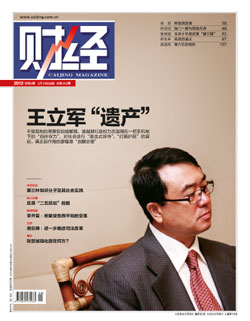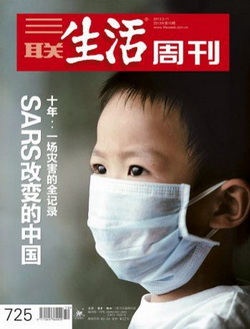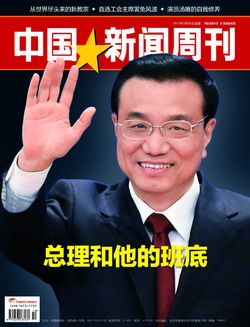
Mar 25, 2013
Translated by Chi Yi
A quick wrap of the major cover stories in Chinese magazines this week

Wang Lijung's Legacy
Caijing (財(cái)經(jīng)) published March 17
Last week's cover story takes a look at the long shadow cast over the mountain city of Chongqing in southwest China by Wang Lijun (王立軍), the former head of the city’s Public Security Bureau (PSB). The article states that the Chongqing police force are still working to at ridding the city's public security institutions of Wang’s influence. "It's easy to erase his inscriptions but the task of erasing his policies and toxic influence in the local police force is far from complete." During the 44 months Wang was in office he carried out reforms in both the "hardware" and "software". The construction projects like hospitals and other buildings are worth billions of dollars. In 2010 alone, Chongqing hired 10,800 new policemen. The number of the city police officers was doubled to over 40,000 during Wang's term in office.
Original Article: [Chinese]

How SARS Changed China
Sanlian Life Weekly (三聯(lián)生活周刊) published March 12
The cover story looks back to 2003 when the spread of Severe Acute Respiratory Syndrome (SARS) caused a nationwide public health crisis in China. The journalists from Sanlian Life Weekly went back to the worst-hit area and interviewed patients and doctors. They hope that the article can help document what society was like when SARS hit. One of the patients they interviewed is a journalist herself. In her story she recalled how she was refused treatment by a hospital that claimed that there were "no spare bed," how she wrote her will and told her adopted son she was not his biological mother and how she suffered not only physically but also psychologically.
Original Article: [Chinese]
 The New Premier and his Men
The New Premier and his Men
China Newsweek (新聞周刊) published March 22
The cover story focuses on China’s new premier Li Keqiang (李克強(qiáng)) and his new government. Li is the seventh premier of China and the youngest one since China's "reform and opening up" policies began in the late seventies. Many of the newly-appointed high ranking officials are highly-educated professionals. In fact 40 percent of the 25 ministry heads have got a PhD and 70 percent have master’s degree or above. For example, the new Minister of Education will be a former president of Peking University.
Original Article: [Chinese]